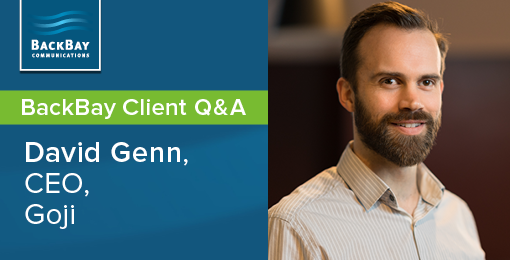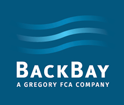
What is Goji and what’s its mission?
Goji is a London-headquartered, globally focused financial technology company. Our mission is to increase access to private markets investments, by providing investment platform technology and services to investment managers. We aim to bring a similar experience and digital journey to those looking to invest in private markets as you might expect for public markets investments.
Interest in private markets is growing rapidly – the market is expected to grow by 47% by 2025, with individual investors expected to be one of the key drivers of this growth. To capitalise on this, asset managers and their administrators need to find scalable solutions and adopt new operating models. We provide the underlying supporting technology.
Why do you think individual investors should invest in private markets? And why should private fund managers be looking to tap individual investors?
The private markets have always been a part of institutional investors’ portfolios as they have attractive characteristics, and we’ve seen allocations increase over time as the result of strong performance. At the same time, individual investors are assuming more control over the way they invest their portfolios – for example through the move towards defined contribution pension schemes – and are increasingly looking to access the same kinds of assets that an institutional investor would have access to.
So I think it’s a natural consequence of the democratisation of all kinds of investing and managers, RIAs, and IFAs are having to respond to that shift and help their clients get access to those kinds of products. That’s a good thing for everyone as otherwise we end up in a situation where you can only get access to private equity if either you are lucky enough to be in a big pension scheme or are wealthy enough to be a quasi-institutional investor yourself.
It’s a trend that works both ways; if people are having to be more self-directing with their investments, then private fund managers are potentially missing out on opportunities to attract new kinds of capital. Broadening their investor base also helps with concentration risk; with a small number of institutional investors there’s always the danger that one of those investors decides not to reinvest when the time comes to reup and that can create an outsized problem. The greater range of investor interest means you can diversify the capital that you raise.
What are the obstacles or biggest challenges investors face when trying to invest in the private markets?
If you look at the other asset classes like equity funds and ETFs, there’s been huge investment in both product design, technology and operations that mean that investors can access those asset classes easily. And you get platforms like Vanguard now that charge very, very low rates to access those kinds of products. The illiquid space hasn’t had that level of innovation historically. Of course we’d never want to see the private markets get to the point where they are as accessible and liquid as the public markets as that would lose some of the unique investment characteristics.
We are however seeing some innovation through new fund structures like the ELTIF in Europe and LTAF in the UK that give investors more regulatory protection but that also make it easier for fund managers to bring an illiquid private asset class to a broader market.
If you can distribute to a broader market, you need the operational efficiencies and technology to make that happen. That’s why our partnership with Euroclear is a real industry changing event because it means that one of the largest post-trade settlers for mutual funds across Europe and the world will now have a private markets capability. You’ll no longer be relying on manual processes to place orders into private funds or relying on individual solutions that a distributor or a fund manager has developed themselves. Instead, you’ll have cross-industry, cross-market technology infrastructure that will facilitate investing into private funds.
You mentioned your relationship with Euroclear, the securities settlement house, which recently acquired Goji. What makes them a good fit for Goji and what does this mean for both the Euroclear business for the private markets more broadly?
The vision we had for Goji was to build the infrastructure that would make alternative investments and private funds more accessible. We’re a team of technologists who get a real kick out of using technology to solve these kinds of problems and sit in the background and deal with the complex back office operational challenges that face the industry. We really enjoy doing that.
Euroclear connects distributors and large custodians through to the manufacturers of products, whether that be the asset managers, the TAs or the fund administrators. The provide the piping that connects the two, including a whole range of post-settlement and post-trade processing across equities, fixed income and funds. However previously, they didn’t have support for private funds.
So it was really a meeting of minds as we both had the same vision for what the industry needed, to do the same for private funds as Euroclear already does for mutual funds. The partnership will see the combination of our technology and expertise with the scale and reach of Euroclear.
What does success look like for Goji?
It’s really the ability to execute on that vision. So it’s how successfully we can connect our technology into Euroclear’s scale and really enable the industry to benefit from this new connectivity. We’ll be looking at how distributors and many of Euroclear’s clients are able to leverage the new capabilities to digitally access private funds.
We will also see how asset managers and fund managers are able to benefit from the way they distribute their products as well – how they’re able to leverage the networking distributors Euroclear have on their system. It’s bringing these capabilities to actors on both sides of the market; being able to do things much more efficiently at a greater scale.
The unintended consequences of this new market infrastructure will also be interesting to watch. Up until now, things like the ELTIF have been slightly hindered because of the operational blockers to people being able to access the funds efficiently. So, if those problems go away, it’ll be fascinating to see what that does for the evolution of the product and the way asset managers can bring new kinds of products to market – products with new characteristics targeting new investor groups.
Where do you see the greatest opportunities for growth in the next 1-3 years?
There’s huge opportunity on a global basis. The US in particular is an interesting market, where we can both look to opportunities within the US and also leverage our position within Euroclear to help US managers that want to distribute more effectively across Europe and the rest of the world. I think there will be massive opportunities here.
What role has marketing played in your success to now?
It’s about helping us tell the story. When you are in an evolving market and are bringing new products into that market, there’s a huge amount of opportunity, but also a real challenge to educate clients to make sense of an environment that’s changing so quickly.
You therefore need to be able to effectively tell a story, to help the client understand what it is they need, what the opportunities are, and how Goji fits into that landscape. If you don’t have a good marketing function, then it can be very difficult to tell that story and do that in a way that’s easy for people to hear. That’s particularly true in the environment we’re in now, where people are drowning in content. To be able to stand out against that noisy background is difficult and you need effective marketing to be able to do that.
What do you think defines the Goji culture?
It’s something we get asked when we’re doing interviews for new hires a lot and I would say that there are two parts to the answer. One would be the values that we have as a business and that we really try to live by.
And the second thing is the quality of the people that we have. We have worked hard to hire the best people that we can, but also to hire people that are low on ego and want to help the team succeed. As a result of that, we have a creative group of people that are good at solving problems, but who also really enjoy working together and put other people’s needs ahead of their own. That creates a fun environment that people enjoy working in, one that is collaborative and is about succeeding as a team rather than succeeding as an individual.


